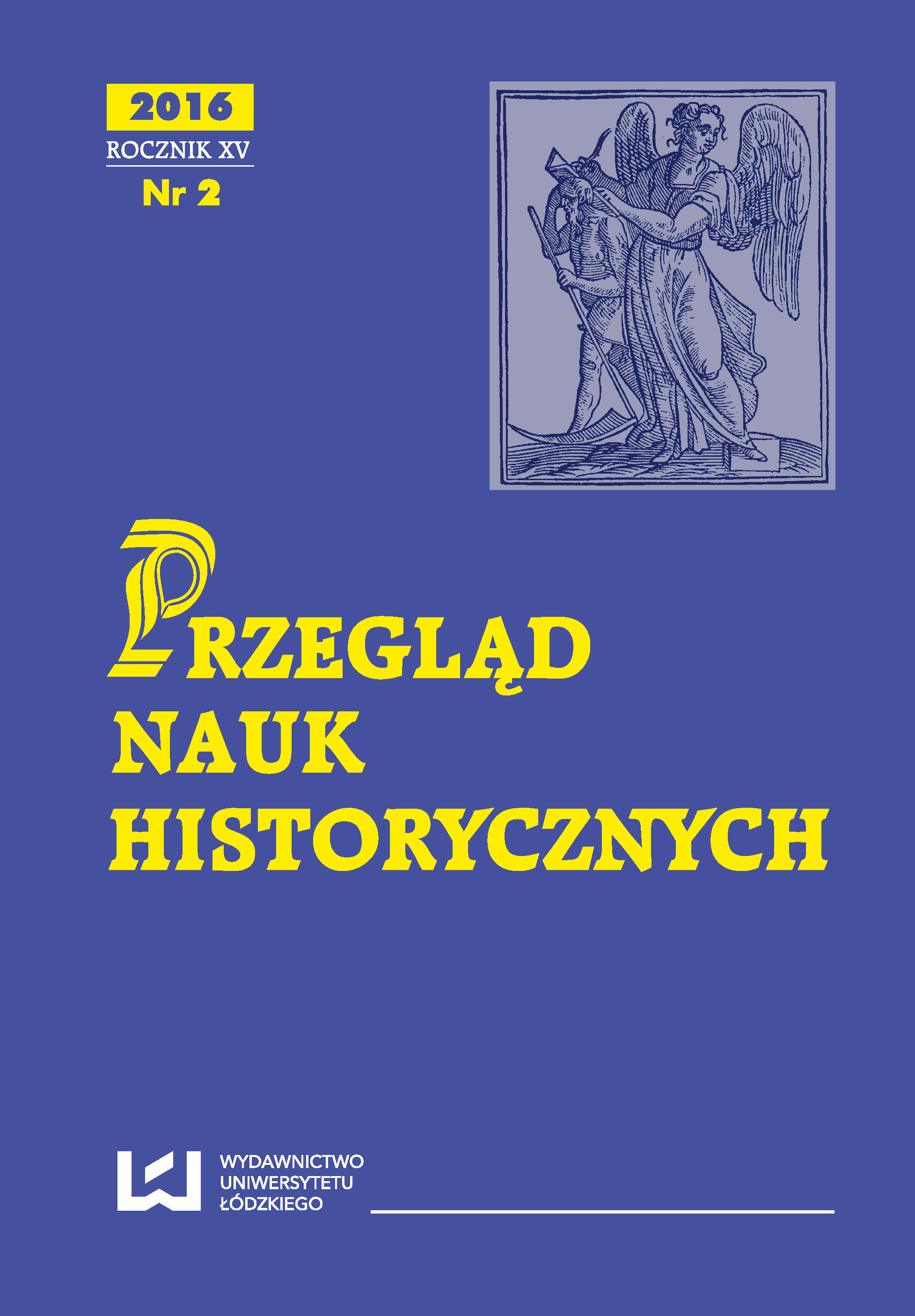Dzwony kościelne utracone w czasie II wojny światowej z terenu diecezji kieleckiej. Przyczynek do zagadnienia
Church bells lost during the Second World War from the diocese of Kielce. A contribution to the problem
Author(s): Małgorzata KarkochaSubject(s): History of Church(es), Military history, WW II and following years (1940 - 1949)
Published by: Wydawnictwo Uniwersytetu Łódzkiego
Summary/Abstract: The aim of the article is to discuss the losses sustained by the Diocese of Kielce in relation to the sacral bells during the Second World War. This issue was not so far discussed in detail in historical literature. On the basis of available sources (materials stored in the Archive of the Diocese in Kielce) it should be noted, that during the last war the diocese of Kielce lost more than 160 church bells because of the German military requisition and at least a few as a result of the warfare. The highest intensity of the action of confiscation bells by the Nazis were recorded in 1941–1942, after that time it took place only very occasionally. Among the confiscated bells were 43 antique ones, cast before 1900. The most historical bells, as many as five, lost the Parish of Gnojno. The oldest bell, looted by the Germans from the Church dedicated to the Nativity of the Blessed Virgin Mary in Książ Mały, was cast in 1500. The most of the bells made before 1900 was the work of unknown artists. Only a few of them bear the signature of the craftsman. Bells funded in the interwar period came mostly from the three Polish foundries, that is factories of Felczyński Brothers in Kalush (Kałusz) and Przemyśl, workshop of Karl Gustav Schwabe in Biała near Bielsko and the „Bells Foundry Francis Lott, Michael Dziarski and Company” („Odlewnia Dzwonów Franciszek Lott, Michał Dziarski i Spół- ka”), located in Pustelnik near Warsaw.
Journal: Przegląd Nauk Historycznych
- Issue Year: 13/2014
- Issue No: 2
- Page Range: 93-117
- Page Count: 25
- Language: Polish

